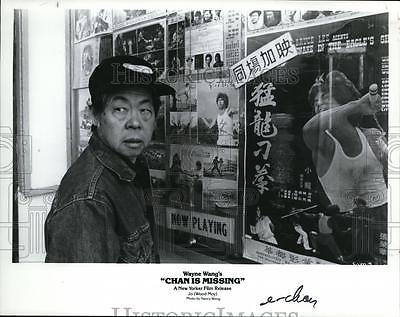|
Up To A Certain Point
''Up to a Certain Point'' (Spanish: ''Hasta cierto punto'') is a 1983 Cuban movie directed by Tomás Gutiérrez Alea. It focuses on a theater director who starts up a relationship with a female dockworker. However, his machismo complicates matters. The movie is a general look at gender roles A gender role, also known as a sex role, is a social role encompassing a range of behaviors and attitudes that are generally considered acceptable, appropriate, or desirable for a person based on that person's sex. Gender roles are usually cente ... in Cuba as well as the conflict between machismo and the idealized image of liberated women under communism. External links * 1983 films 1983 drama films Cuban drama films 1980s Spanish-language films {{Cuba-film-stub ... [...More Info...] [...Related Items...] OR: [Wikipedia] [Google] [Baidu] |
Tomás Gutiérrez Alea
Tomás Gutiérrez Alea (; December 11, 1928 – April 16, 1996) was a Cuban film director and screenwriter. He wrote and directed more than twenty features, documentaries, and short films, which are known for his sharp insight into post-Revolutionary Cuba, and possess a delicate balance between dedication to the revolution and criticism of the social, economic, and political conditions of the country. Gutiérrez's work is representative of a cinematic movement occurring in the 1960s and 1970s known collectively as the New Latin American Cinema. This collective movement, also referred to by various writers by specific names such as "Third Cinema", "Cine Libre", and "Imperfect Cinema," was concerned largely with the problems of neocolonialism and cultural identity. The movement rejected both the commercial perfection of the Hollywood style, and the auteur-oriented European art cinema, for a cinema created as a tool for political and social change. Due not in a small part to the ... [...More Info...] [...Related Items...] OR: [Wikipedia] [Google] [Baidu] |
Juan Carlos Tabío
Juan Carlos Tabío (3 September 1943 – 18 January 2021) was a Cuban film director and screenwriter. His film ''Strawberry and Chocolate'' (1994), which he co-directed with Tomás Gutiérrez Alea, won a Silver Bear - Special Jury Prize at the 44th Berlin International Film Festival, and was also nominated for the Academy Award for Best Foreign Language Film. He has collaborated with director and close friend Tomás Gutiérrez Alea and actors Jorge Perugorría, Vladimir Cruz and Mirta Ibarra in several films. His 2000 film, '' Lista de Espera'', was screened in the Un Certain Regard section at the 2000 Cannes Film Festival. Biography Juan Carlos Tabío was born in 1943 in Havana, Cuba. Although his illustrious filmmaking career spanned nearly three decades, his initial involvement in the genre came as an accident. When he was young, his parents prepared him for a career in politics. It was not until a family friend who worked for the national cinemagraphic society invited him t ... [...More Info...] [...Related Items...] OR: [Wikipedia] [Google] [Baidu] |
Leo Brouwer
Juan Leovigildo Brouwer Mezquida (born March 1, 1939) is a Cuban composer, conductor, and classical guitarist. He is a Member of Honour of the International Music Council. Family He is the grandson of Cuban composer Ernestina Lecuona y Casado. His great-uncle, Ernesto Lecuona, composed " La Malagueña" and his second cousin, Margarita Lecuona, composed " Babalú", which was popularized by Cuban musician and actor Desi Arnaz. Music career Early years Brouwer was born in Havana. When he was 13, he began classical guitar with the encouragement of his father, who was an amateur guitarist. His teacher was Isaac Nicola, who was a student of Emilio Pujol, who was himself a student of Francisco Tárrega. At age 17 he performed publicly for the first time and began composing. Brouwer went to the United States to study music at the Hartt College of Music of the University of Hartford, and later at the Juilliard School, where he studied under Vincent Persichetti and took composition ... [...More Info...] [...Related Items...] OR: [Wikipedia] [Google] [Baidu] |
New Yorker Films
New Yorker Films is an independent film distribution company founded by Daniel Talbot in 1965. It started as an extension of his Manhattan movie house, the New Yorker Theater, founded 1960, after a film's producer would not allow for a movie's single booking. It went out of business in 2009 and was revived the next year with its acquisition by Aladdin Distribution. Background Through New Yorker Films, Talbot aimed to import foreign films that were not otherwise available in the US market. His first acquisition for distribution was the Bernardo Bertolucci debut film '' Before the Revolution'' (1964). Other early acquisitions, such as Jean-Luc Godard's ''Les Carabiniers'' (1963) and Ousmane Sembène's '' Black Girl'' (1966), helped establish New Yorker Films as a presenter of innovative, artistically significant, and politically engaged films from around the world. Titles introduced New Yorker Films helped gain an audience for controversial and challenging works avoided by other di ... [...More Info...] [...Related Items...] OR: [Wikipedia] [Google] [Baidu] |
Cuba
Cuba ( , ), officially the Republic of Cuba ( es, República de Cuba, links=no ), is an island country comprising the island of Cuba, as well as Isla de la Juventud and several minor archipelagos. Cuba is located where the northern Caribbean Sea, Gulf of Mexico, and Atlantic Ocean meet. Cuba is located east of the Yucatán Peninsula (Mexico), south of both the American state of Florida and the Bahamas, west of Hispaniola ( Haiti/ Dominican Republic), and north of both Jamaica and the Cayman Islands. Havana is the largest city and capital; other major cities include Santiago de Cuba and Camagüey. The official area of the Republic of Cuba is (without the territorial waters) but a total of 350,730 km² (135,418 sq mi) including the exclusive economic zone. Cuba is the second-most populous country in the Caribbean after Haiti, with over 11 million inhabitants. The territory that is now Cuba was inhabited by the Ciboney people from the 4th millennium BC with th ... [...More Info...] [...Related Items...] OR: [Wikipedia] [Google] [Baidu] |
Spanish Language
Spanish ( or , Castilian) is a Romance language of the Indo-European language family that evolved from colloquial Latin spoken on the Iberian peninsula. Today, it is a global language with more than 500 million native speakers, mainly in the Americas and Spain. Spanish is the official language of 20 countries. It is the world's second-most spoken native language after Mandarin Chinese; the world's fourth-most spoken language overall after English, Mandarin Chinese, and Hindustani (Hindi-Urdu); and the world's most widely spoken Romance language. The largest population of native speakers is in Mexico. Spanish is part of the Ibero-Romance group of languages, which evolved from several dialects of Vulgar Latin in Iberia after the collapse of the Western Roman Empire in the 5th century. The oldest Latin texts with traces of Spanish come from mid-northern Iberia in the 9th century, and the first systematic written use of the language happened in Toledo, a prominent city of ... [...More Info...] [...Related Items...] OR: [Wikipedia] [Google] [Baidu] |
Theater
Theatre or theater is a collaborative form of performing art that uses live performers, usually actors or actresses, to present the experience of a real or imagined event before a live audience in a specific place, often a stage. The performers may communicate this experience to the audience through combinations of gesture, speech, song, music, and dance. Elements of art, such as painted scenery and stagecraft such as lighting are used to enhance the physicality, presence and immediacy of the experience. The specific place of the performance is also named by the word "theatre" as derived from the Ancient Greek θέατρον (théatron, "a place for viewing"), itself from θεάομαι (theáomai, "to see", "to watch", "to observe"). Modern Western theatre comes, in large measure, from the theatre of ancient Greece, from which it borrows technical terminology, classification into genres, and many of its themes, stock characters, and plot elements. Theatre artist P ... [...More Info...] [...Related Items...] OR: [Wikipedia] [Google] [Baidu] |
Dockworker
A stevedore (), also called a longshoreman, a docker or a dockworker, is a waterfront manual laborer who is involved in loading and unloading ships, trucks, trains or airplanes. After the shipping container revolution of the 1960s, the number of dockworkers required declined by over 90%. Etymology The word ''stevedore'' originated in Portugal or Spain, and entered the English language through its use by sailors. It started as a phonetic spelling of ''estivador'' ( Portuguese) or ''estibador'' (Spanish), meaning ''a man who loads ships and stows cargo'', which was the original meaning of ''stevedore'' (though there is a secondary meaning of "a man who stuffs" in Spanish); compare Latin ''stīpāre'' meaning ''to stuff'', as in ''to fill with stuffing''. In Ancient and modern Greek, the verb στοιβάζω (stevazo) means pile up. In the United Kingdom, people who load and unload ships are usually called ''dockers''; in Australia, they are called ''dockers'' or ''wharfies''; ... [...More Info...] [...Related Items...] OR: [Wikipedia] [Google] [Baidu] |
Machismo
Machismo (; ; ; ) is the sense of being " manly" and self-reliant, a concept associated with "a strong sense of masculine pride: an exaggerated masculinity". Machismo is a term originating in the early 1930s and 1940s best defined as having pride in one’s masculinity. It is associated with "a man's responsibility to provide for, protect, and defend his family". Machismo is strongly and consistently associated with dominance, aggression, exhibition, and nurturance. The correlation to machismo is found to be deeply rooted in family dynamics and culture. The word has a long history both in Spain and Portugal, including the Spanish and Portuguese languages. in Portuguese and Spanish is a strictly masculine term, derived from from the Latin ''mascŭlus'', which means "male". It was originally associated with the ideal societal role men were expected to play in their communities, most particularly Iberian language-speaking societies and countries. In addition, due to Mexico ... [...More Info...] [...Related Items...] OR: [Wikipedia] [Google] [Baidu] |
Gender Roles
A gender role, also known as a sex role, is a social role encompassing a range of behaviors and attitudes that are generally considered acceptable, appropriate, or desirable for a person based on that person's sex. Gender roles are usually centered on conceptions of masculinity and femininity, although there are exceptions and variations. The specifics regarding these gendered expectations may vary among cultures, while other characteristics may be common throughout a range of cultures. In addition, gender roles (and perceived gender roles) vary based on a person's race or ethnicity. Gender roles influence a wide range of human behavior, often including the clothing a person chooses to wear, the profession a person pursues, the personal relationships a person enters, and how they behave within those relationships. Although gender roles have evolved and expanded, they traditionally keep women in the "private" sphere, and men in the "public" sphere. Various groups, most not ... [...More Info...] [...Related Items...] OR: [Wikipedia] [Google] [Baidu] |
Communism
Communism (from Latin la, communis, lit=common, universal, label=none) is a far-left sociopolitical, philosophical, and economic ideology and current within the socialist movement whose goal is the establishment of a communist society, a socioeconomic order centered around common ownership of the means of production, distribution, and exchange which allocates products to everyone in the society.: "One widespread distinction was that socialism socialised production only while communism socialised production and consumption." Communist society also involves the absence of private property, social classes, money, and the state. Communists often seek a voluntary state of self-governance, but disagree on the means to this end. This reflects a distinction between a more libertarian approach of communization, revolutionary spontaneity, and workers' self-management, and a more vanguardist or communist party-driven approach through the development of a constitutional s ... [...More Info...] [...Related Items...] OR: [Wikipedia] [Google] [Baidu] |





